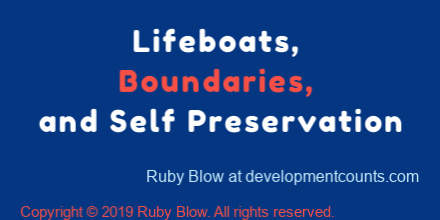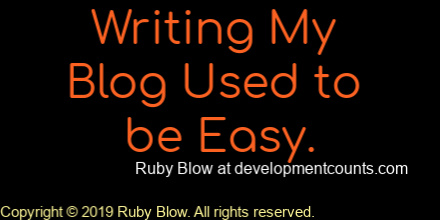Pac Rim
I am a movie buff (of sorts). One of my favorites ways to unwind is to watch movies. Specifically, movies I have seen before. One of my recent favorites is a movie called “Pacific Rim.” I own it on Amazon video.
In the film “Pac Rim,” the heroes are fighting giant Godzilla type monsters that come from deep within the earth’s core. They emerge from an underwater fissure in the earth’s crust found in the Pacific ocean. Because of the size of these monsters, the humans/heroes create these giant robots called “Jaegers.” Jaeger means “robot” in German.
Chasing the Rabbit
Because of the size of the monsters (called the “kaiju” – Japanese for “strong beast”), the giant robots must be substantial in size and require two pilots to operate them. These human pilots essentially serve as the brain of the Jaegers. They share the “neural load.” While inside the Jaegers and also connected to one another’s brain circuitry, the pilots have access to each other’s thoughts, feelings and memories.
The pilots must learn to allow their brains to drift…not delving into their memories and becoming disoriented. Essentially, they can’t chase their baggage. In the film they refer to it as “chasing the rabbit.” Everyone, of course, has baggage. In this film, just like in life, the most intense baggage is associated with loss, physical trauma and emotional trauma, as well as the body and sense memory of pain.
Dealing with Our Stuff
This week, a few counselors I supervise discussed how working on themselves led to their desire to enter the mental health profession. It is quite common for people to enter the field because of their own “stuff.” The goal being to better understand oneself; alongside either helping, fixing, supporting or facilitating healing for others.
Resistance and Frustration
Therapists quickly learn how truly challenging it can be for people to change (including themselves), even when they want to change. A therapist can try to intervene and offer resources, make suggestions etc…but it is up to clients to determine their next steps. Those next steps have a pace that are unique to that client and to the relational support they have from the therapist and others.
Clients can get labeled as resistant when resistance is in fact part of the process. It is our own frustration as therapists that must be monitored. Generally speaking, that frustration is putting us in contact with our “stuff” or our own “baggage.”
It is our own baggage that causes us to push when we should be patient. We can end up doing too much. We risk confusing the line between our work and the client’s work.
Our Inheritance
Popular culture is rampant with jokes about therapy and therapists causing people to place blame on their parents. The truth is that in many cases, we must overcome or come to terms with our inheritance from our families and our early experiences as well as our early environment.
Ironically, we also inherit the legacies of not only our family’s patterns but also the aftermath of their end of life and what they leave behind – emotionally, physically and financially. We inherit their baggage too, whether the relationships were resolved or very complicated.
The Gift of Therapy
The gift of therapy is that we can learn to explore that baggage and ultimately release theirs as well as the impact of our own baggage. When therapists are working through their own stuff while simultaneously working on addressing their own baggage, it becomes urgent.
- It is urgent because the therapist is feeling their own pain and in some cases may feel like a fraud; and that feeling can distract them from their focus on the client.
- It is urgent because it can conflate their own life with their client’s lives.
- It is urgent because the pain, discomfort and rumination about what is happening for the therapist in the process of being a therapist (and having their own baggage) can become all consuming and undermine their own emotional well-being.
Being in the Flow/the Drift
I highly recommend that therapists consider being at the client’s pace. I also recommend therapists be in their own therapy. However, it is vital that they have some case consultation that is not rooted in their own “stuff.” They need some help seeing what is their baggage and what is the client’s baggage, without always relying on the sometimes injurious work of therapy which on some level involves excavating the soul.
There should be a space for clients in therapy that is solely focused on what they are articulating as their needs; as opposed to the therapist determining that they know the client’s needs better than the client themselves. Yes, we do need to conceptualize and work from a framework. But more than that, we must create the space for the client. We must be in the “drift” – just like the Jaeger pilots sharing the neural load: the broken self and the therapist self.
Doing Too Much
Therapists must be cautious about doing too much and interfering with the obvious needs of the client. Each person is unique. Some people respond well to pressure and others will never open up if they feel pressured. In our supervision meeting we likened it to gardening.
Some among us, despite our deep desire to grow plants and gardens, struggle to keep plants alive. Other’s among us, with very little effort, have what are known as green thumbs. I happen to be a natural green thumb. I err on the side of under-watering my plants.
- I learned early on that plants can thrive if you don’t tinker with them too much.
- I learned not to over nurture them.
- I learned to let the plants teach me by how they respond to my care.
This is akin to what we must do as therapists.
Our Loved One’s Baggage
I have found that no matter how much work you’ve done on your own baggage, through illness, death and infirmity one can inherit their parent’s stuff/baggage both literally and figuratively. This process can hasten dealing with one’s own stuff in a way similar to being a therapist.
I think it is vital that we all consider what we leave behind for others to deal with unintentionally as well as intentionally. It is also important to consider what we are carrying forward on our own.
- What are we carrying around with us?
- What are we carrying that is not ours?
I am struck by the recent passing of famous and financially wealthy individuals who did not have wills, trusts or plans for their estates and all of the “baggage.”
- The relational legacies
- The financial legacies
- The physical legacies
Leaving behind battles for their loved ones to be fight among themselves and others. Leaving behind collections of work as well as belongings and plain ole stuff (I’m guessing).
Let’s Unpack…Manage Your Process
Let’s all unpack our baggage and cultivate a plan of being. I highly recommend a way of being that involves acceptance of what is. I have to remind myself of this regularly.
Albeit imperfect…there are some things we can change and many things we can’t do much about. As I said the serenity prayer to myself today while dealing with my parent’s respective estates, I was reminded that there is so much I can’t change. I can only manage how I am in the process.
Copyright © 2018 Ruby Blow. All rights reserved.
Share your thoughts on Linkedin, Facebook, Twitter or log in to one of your accounts below to comment. Subscribe to my YouTube channel.





